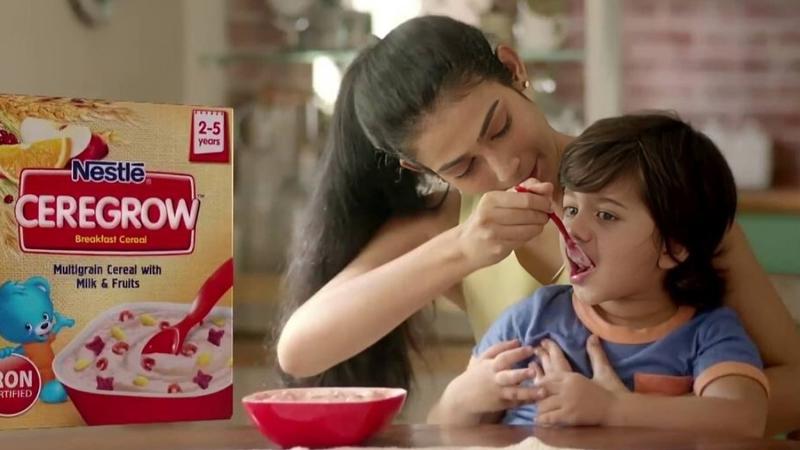Published 10:52 IST, April 18th 2024
Nestlé sells 15 varieties of Cerelac in India, all contains added sugar: Report
Shockingly, the same Cerelac is sugar-free in Switzerland, Germany, and the UK. In some countries, like Thailand, the added sugar level is even higher.

Nestlé controversy: Nestlé, the world's largest consumer goods company, has been accused of adding high levels of sugar to its Cerelac baby food products sold in India and other developing countries, while offering sugar-free versions in wealthier nations.
These findings, based on an investigation by Public Eye, a Switzerland-based NGO, and the International Baby Food Action Network (IBFAN), shed light on the alleged deceptive marketing strategies deployed by Nestlé.
In India, for instance, all 15 Cerelac varieties contain an average of 3 grams of added sugar per serving, according to the report. Notably, Cerelac is a top-selling baby product in India, generating over Rs 20,000 crore in sales annually.

Double standard on sugar content
According to Public Eye, Nestlé sweetens Cerelac cereals and Nido milk formulas with sugar and honey in Asian, African, and Latin American countries. These products target babies as young as six months old. Shockingly, the same Cerelac is sugar-free in Switzerland, Germany, and the UK.
Some Cerelac products in Ethiopia and Thailand go even further, containing nearly 6 grams of added sugar per serving. Often, the amount of added sugar isn't even disclosed on the packaging.

Nestlé India's response
In response to an emailed query regarding the accusations, Nestlé India spokesperson told Republic Business, “We believe in the nutritional quality of our products for early childhood and prioritise using high-quality ingredients. Over the past 5 years, Nestlé India has reduced added sugars by up to 30 per cent, depending on the variant, in our infant cereals portfolio (milk cereal based complementary food).”
“We regularly review our portfolio and continue to innovate and reformulate our products to further reduce the level of added sugars without compromising on quality, safety and taste,” Nestlé India added.
In a separate detailed response to Republic Business, Nestlé India spokesperson said, “We would like to assure you that our Infant Cereal products, are manufactured to ensure the appropriate delivery of nutritional requirements such as Protein, Carbohydrates, Vitamins, Minerals, Iron etc. for early childhood. We never compromise and will never compromise on the nutritional quality of our products. We constantly leverage our extensive Global Research and Development network to enhance the nutritional profile of our products.”
“Compliance is an essential characteristic of Nestlé India and we will never compromise on that. We also ensure that our products manufactured in India are in full and strict compliance with CODEX standards (a commission established by WHO and FAO) and local specifications (as required) pertaining to the requirements of all nutrients including added sugars. Nestlé India is committed to delivering the best nutrition to our consumers, which we have been doing for over 100 years and would always maintain highest standards of Nutrition, Quality and Safety in our products.”
Health Experts Warn of Risks
Experts in childhood nutrition are alarmed by Nestlé's practices. “Adding sugar to baby food is unnecessary and highly addictive,” Rodrigo Vianna, an epidemiologist and professor at the Federal University of Paraiba in Brazil, told Public Eye.
"Children get used to the sweet taste and start looking for more sugary foods, starting a negative cycle that increases the risk of nutrition-based disorders in adult life. These include obesity and other chronic non-communicable diseases, such as diabetes or high blood pressure."
Marketing to vulnerable populations

Nestlé heavily promotes Cerelac and Nido in low- and middle-income countries, portraying them as essential for healthy child development.
They leverage social media influencers to reach parents and build brand trust. Critics argue this exploits weaker regulations in developing countries to boost sales, prioritising profit over the health of vulnerable populations.

Public Eye and the International Baby Food Action Network (IBFAN) are urging stricter regulations on added sugar in baby food products globally. The World Health Organization (WHO) recommends eliminating added sugars from food products for young children.
Nestlé India shares have fallen 5.32 per cent to an intraday low of Rs 2,410.6 apiece on the NSE during early trade on Thursday, April 18, 2024.
Updated 15:12 IST, April 18th 2024




